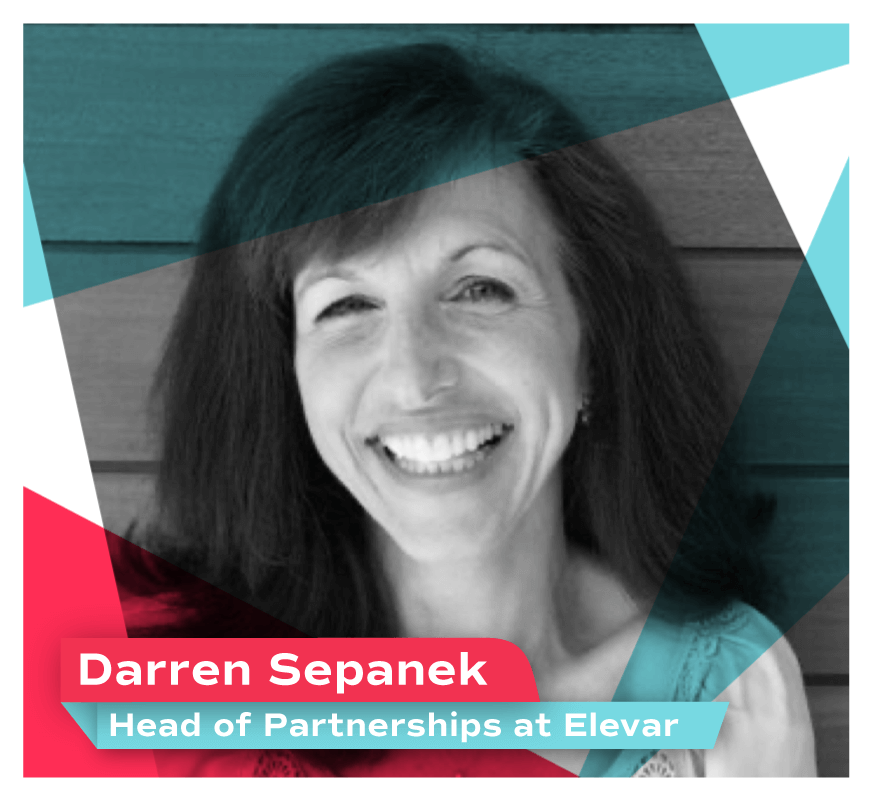The metaphorical cat is out of the bag: business generated by partnerships is trending upwards and the ecosystem space is growing. As more companies catch onto what most partnerships people have known for years, partner programs are increasingly table stakes. This means your partner brand is just as important as any tool or workflow. After all, if everyone in your space has the same perks, tiers, and partner rewards — you’ll need to lean on the more intangible aspects of your program.
One way to build a strong partner brand is by investing in partner marketing. When growing his partnerships team at Oyster to more than 100 partners in less than a year, Partnerships Lead Bruno Cunha prioritized partner marketing making it the seventh member of his fast-growing team. In an April 2022 episode of the Partnered Podcast, Head of Partnerships at Friendbuy Samantha Samuels said that her second hire after starting the Friendbuy partner program was a partner marketer.
We spoke to five partner marketers about the job and its impact on their respective companies. All five have varying titles, job descriptions, company sizes, and team sizes. However, they all have significantly helped their companies build stronger partnerships brands.
In this blog post, we cover:
- What is partner marketing?
- Why your general marketing just won’t cut it
- The benefits of partner marketing
What is partner marketing?
Partner marketing builds a strong partnerships brand using various marketing motions. Partner marketers are often tasked with attracting new partners, amplifying existing partners, and communicating with their partner’s customers. Some examples of partner marketing often include:
“People hear ‘partner marketing’ and think it’s something that can be accomplished by slapping a partner’s logo on a one-pager,” Darren Sepanek, Head of Partnerships at Elevar told us. “It’s so much more than that. It’s about how you tell your story and communicate your company’s value with and to partners. [It’s about] helping partners sell the value of your company or the joint value you bring to market with partners.”
Defining the role of a partner marketer (PM) is still a relatively new practice. As a result, the position can vary from company to company. Generally, partner marketers:
- Create value proposition stories that target both potential partners and consumers.
- Maintain deep relationships with partners that allow the PM to monitor the partner’s marketing efforts and goals and spot co-marketing opportunities.
- Ensures the “partnerships” brand at their company is strong, enticing new partners to join the ecosystem.
- Find creative ways to re-package webinars, blogs, and other marketing materials that amplify partners.
- Make sure that partnerships are included in larger company-wide marketing efforts.
- Enables re-seller partners with messaging, templates, and other brand assets.
- Generate leads for potential partners and referrals from existing partners through targeted marketing campaigns.
- Organize webinars, happy hours, and other partnerships events.
- Create written and/or visual assets for use by the partnerships team or partners.
There are many ways to elevate your partner marketing by bringing partner marketers in at different levels of your organization:
Partner marketers that sit between teams
Charlene Strain, Partner Marketing Manager at Pendo.io, and Lindsay Kolinsky, Partner Marketing Lead at Okendo both described themselves as “bridges” for the teams they work with.
Kolinsky sits on the partnerships team at Okendo but also works closely with the company’s general marketing team. As a partner marketer, she’s responsible for launching a varying number of partner co-marketing initiatives. However, this KPI falls within a bigger contextual goal of finding the overlap between the partnerships and marketing teams’ goals.
Kolinsky must keep her finger on the pulse of all partnerships KPIs and marketing initiatives. When a partner manager needs marketing support for one of their partners, they approach Kolinsky. She then checks to see if any of her current co-marketing initiatives or the marketing team’s initiatives would be good fits to include that particular partner. If not, she finds creative ways to create something new — such as highlighting that partner on social media.
Because of her deep relationships with Okendo’s partnerships team, marketing team, and their partners, Kolinsky is also able to spot unprompted opportunities for:
- Collaboration between Okendo’s partnerships and marketing team to attract more partners.
- Collaboration between Okendo’s partnerships team and their partner’s marketing teams through co-marketing efforts.
Similarly, Strain is the first dedicated partner marketing manager at Pendo.io for the reseller partner program. She sits on the product marketing team and works directly with the company’s reseller partners, making sure all co-development of marketing materials, product launch planning, promotion, and enablement are up to date and valuable. In overseeing the rollout of co-marketing efforts with reseller partners, Strain protects the Pendo.io partner brand by:
- Making it easy for reseller partners to co-market with Pendo.io. The less a partner has to do in order to implement co-marketing materials, the better their experience will be. And having a reputation as a partner program that is easy to co-market with will attract new partners to your ecosystem.
- Ensuring all Pendo.io branded materials are used by partners in a way that correctly represents the company. This helps certify that the end consumer who encounters those materials through a reseller partner gets an accurate experience of the brand. Otherwise, there’s the possibility of a game of partnerships telephone.
Partner marketing as a stand-alone team
Moran Khoubian is Director of Global Partner Marketing at Yotpo. She originally pitched the idea of forming a team dedicated to partner marketing after helping build the Yotpo channel program. Now she leads a global team of four that sits in the marketing department (and is currently hiring two more partner marketers).
The team’s headcount and resources have allowed them to create two distinct channels within their team:
- Partner enablement
- Co-marketing
The former (partner enablement) focuses on how to educate and keep partners active with the end goal of driving referrals. They are responsible for ensuring partners have a good experience with Yotpo, offering partner education, brand campaigns, and an engaging partner portal. And it’s working. In the past six months after expanding the partner marketing team, referrals influenced by partner marketing campaigns increased by 80%.
The latter (co-marketing) focuses on creating value for partners by cultivating interest in co-marketing efforts between Yotpo and its partners. When a partner marketing campaign is launched, Khoubian’s team tracks the leads and MQLs within a custom Tableau dashboard.
Khoubian says that the size of her team has a direct effect on the team’s overall impact, specifically in the referrals department. “More partner markets means more campaigns and the activation of more partners.”
Partner marketers as partnerships leaders
Some partner marketers such as Sepanek and Justin Zimmerman, Director of Partnerships at Salesmsg also lead the entire partnerships function at their respective companies. Because of their experience in the field, partner marketing motions are baked into all partner activities and the strategy is more about an integrated, multi-touch approach than a focus on program tactics.
Sepanek and Zimmerman both mentioned that despite the small size of their companies, their respective partner ecosystems are much more robust than companies of comparable size. Zimmerman credits his strategic, partner marketing-led approach for creating a 100+ partner ecosystem for Salesmsg, despite the company having fewer than 20 employees.
Why your general marketing just won’t cut it
Some partner programs successfully engage the company’s general marketing departments to execute partnership motions. However, the partner marketers we spoke to said that this method is not a sustainable way to grow a partner program and that the job is crucial enough to warrant its own position(s). “If you want partner-led growth, partner marketing needs to be a fundamental guiding part of your strategy,” Zimmerman told us.
While a general marketing department might have the time to run a webinar or create co-branded material, they typically aren’t in a position to craft in-depth partner marketing strategies. Here’s why:
- They don’t focus on the fundamental storytelling of partnerships. Even if a general marketing team can handle the lift of partnerships specific asset creation and event production, they miss out on the more fundamental storytelling that partner marketers specialize in for two specific reasons: First, it’s simply not their job. “The problem with relying on corporate marketing is that they have other things to do,” Sepanek said. “They have their own goals building the brand and their goals and objectives typically aren’t focused on partner relationships and going to market with partners.”
- Second although related, general marketing departments do not have deep relationships with partners. While a general marketer’s audience is the end consumer, a partner marketer understands that their audience is a combination of their end consumer, their partner’s end consumer, and the partner themselves. As a result, a partner marketer understands their partner’s motivations and marketing efforts deeply. They can then put together all of the pieces and tell a holistic story that works for the audience they’re going after.
The benefits of partner marketing
In case you’re still on the fence, here are reported benefits to hiring a dedicated partner marketing role:
- Partner marketers optimize your partner-influenced revenue. Khoubian’s team carefully tracks their attribution on partner referrals (which then impact partner-sourced revenue.) 60% of overall referrals a month on average are influenced by partner marketing. For a partnerships team looking to increase their partner-influenced revenue, bringing on a team of partner marketers like Khoubians could be the trick.
- Partner marketers bring new partners to you. “Participation in co-marketing activities has driven so much brand awareness for us because partners are now asking us to participate in their campaigns,” Kolinsky shared. “They see us as being up there with some of the big players in our space, despite the small size of our partner marketing function.” Sepanek affirmed this, sharing that every partner marketing-led event or webinar she’s participated in has had a higher likelihood of attracting new partners than those not led by a partner marketer specifically.
- Partner marketers balance out the “sales-y” side of partnerships. With many partnerships teams full of ex-sales people, it can be difficult to create a partner program that puts reciprocity before sales pitches. Marketers are trained to focus on appealing to an audience rather than on closing a deal (lead generation over lead closure). According to Sepanek, striking a balance between the two is actually crucial for a healthy partner program. “Partner marketers play a crucial role in developing a strategic alliance with partners, beyond the sales relationship,” she told us. In her experience, “partner marketers take the pressure off of sales to demand leads from partners, making lead generation collaborative and mutually beneficial for all concerned.”
As the era of the ecosystem continues, partner programs will have to be more creative in how they target new partners and new consumer audiences through co-marketing with existing partners. Partner marketers could be the answer to this growing demand — it might be worth having a conversation with your hiring manager.








